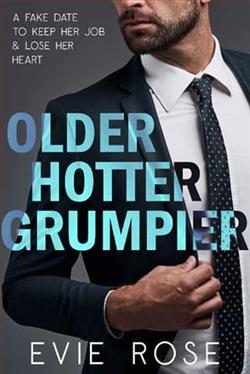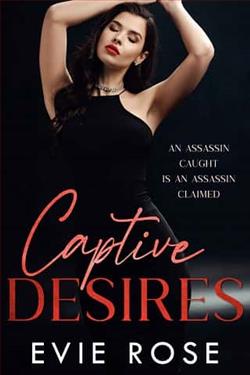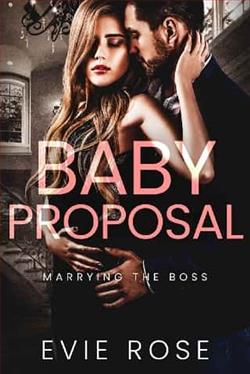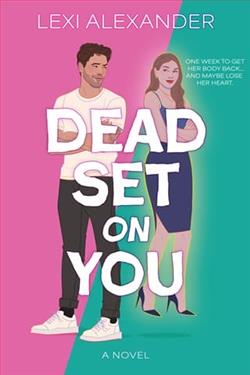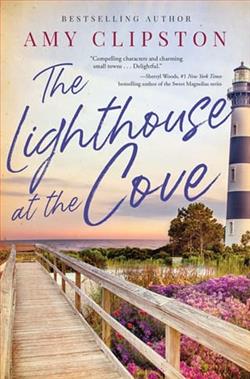Page 2 of Salt
Temporarily reassured, my grandfather sat in his usual chair across from me and I poured him a bowl of coffee.
“Good salt weather, Florian,” he remarked, as he reached for a knife. Slathering butter over the stale heel of yesterday’s baguette, he then dipped it into the steaming bowl before attacking it with gusto. My papi might be losing his marbles, but his teeth were in fine fettle.
A commentary on the suitability of the weather conditions was also ingrained in our morning ritual, but nothing to do with his encroaching memory loss. I’d inherited my salt flat from him—he’d farmed it for fifty years, and his bright eyes still showed an active interest despite his fading ability to hold onto everything else. We both knew the yield of a salt harvest lay at the whim of the weather; hot sun and a warm breeze spun salt into euros, unseasonal rainfall a harbinger of a belt-tightening winter.
“Oui,” I agreed, glancing up into the bright yellow light streaming through the open kitchen window. A busy pair of goldfinches chirped to each other, hidden amongst the branches of the slender pines lining our tiny courtyard garden. “This north-easterly is set for the rest of the week.”
He grunted with satisfaction and then his head dropped as his attention turned to his breakfast. Conversation over. That was another thing I’d noticed more and more. He ate or talked or walked or watched television. But none of those activities at the same time, as if he only had enough fully functioning brain cells to concentrate on one.
A sheaf of letters from Selco sat next to my own coffee bowl. There had been a time when we would have perused the bundle together; Papi would have dispensed wisdom and I may or may not have taken note. But I sure could have done with some sage advice right now, because with each reread, the convoluted business-speak made less and less sense. As I’d done yesterday and every morning since it had arrived, I pushed it to one side.
“Run through your list for the day,” I suggested, gathering my coffee bowl, and plonking it into the sink. His list including washing up and tidying away our breakfast things, although more often than not they were still there on my return.
We kept a diary, open at the day’s date, on the kitchen table—had done for years. Not full of witty social observations or a repository of secret confessions, but a handy reminder of birthdays and dental appointments, a useful place to jot down a phone number or address. At the end of each year, it was thrown away and an identical one took its place.
Around a year ago, I’d become aware that the half pages allocated to each date had become fuller, with more entries written in my papi’s shaky copperplate hand. The start time of a television show, for example, a serial he’d watched weekly for as long as I could remember. A reminder to take the wet washing out of the machine. To meet his friend Paul for boules practice, a rendezvous that had been set in stone forever. He’d not commented at first and neither had I, but over the last few months, his reliance on the list had become more overt. I’d make a remark, such as an observation that we were running low on firelighters, and he’d hurry to write it down. Sometimes, he asked me to repeat myself as he picked up the pen, as if the mere diversion of reaching for a writing implement and navigating to the correct page had tossed the slip of information from his mind.
A more recent step was his dependence on the diary acknowledged by us both.
“Buy bread and haricots,” he began, reading from the list. “Wash up. Buy tobacco. Meet Paul for boules.”
He paused and I thought he’d reached the end and wasn’t going to say it, but then he did, in a throwaway manner as if it mattered not a jot.
“And visit Beatrice for half an hour.”
I always pretended I hadn’t heard that one.
CHAPTER 3
CHARLES
The French were renowned for many things. Imposing gothic cathedrals and chateaux, for instance. Rich, buttery croissants and the Cannes film festival. Paris, the city of love, Napoleon Bonaparte, revolution, priceless art, and chic clothing. The list went on. But friendliness? Not so much. As a nation, they were aloof. As if they regarded emotional incontinence and general warm fuzziness as insincere, as if excessive smiling indicated stupidity.
Perhaps I did them a disservice, but it was very much the vibe channelled by the sullen teenager lolling behind the counter in my local corner shop. A mauve halo bristled around her edgy haircut, warning me of the futility of attempting conversation.
Of course, for all I knew, she might have been an absolute hoot after hours, although my synaesthesia suggested otherwise, and it rarely let me down. Maybe her manner was nothing more than a distaste for foreign tourists with an excellent grasp of the French language but a terrible accent, demonstrating her distaste by failing to understand my daily request for a pain de campagne until I’d repeated it at least twice before parroting it back to me in perfect English. And was it too much to ask that, having carried out this pantomime for coming up to three weeks, she might stop responding to my bonjour with a blank stare, as if she’d never seen me before in her life? Here to help was the English translation of her badge—she intended nothing of the sort. Occasionally, I wondered what her reaction would be if I lay down in the middle of the cereal aisle and screamed and banged my fists on the hard tiled floor until my knuckles bled. Because some mornings, I felt like doing exactly that.
Wandering around the mini grocery store reminded me of one of my father’s old jokes, which had always raised a smile and a headshake from my mother; I’m popping down to the corner shop for four corners, he used to say. A flash of buttery yellow streaked across my vision at the sweet memory. Although in this establishment, his budget may have only stretched to two, as everything—from boxes of table wine to barbecue briquettes—were reassuringly expensive.
An older man, well into his eighties, shuffled up and down the aisles ahead of me, muttering to himself. The ray of sunshine behind the counter hadn’t bestowed on him much more than a cursory head bob either, even though he had the air of being a local. He was plainly dressed, his clothes decent if not a little worn, with one shirt tail tucked into his serge trousers and the other hanging loose. In no particular rush, I waited behind him at the counter while he counted out his money, coin by coin, lips moving and fingers clumsy before placing his few groceries in a hemp bag. The charming shop assistant did everything except tap her foot.
After making my own modest purchases, I began the short stroll home, trying not to think how I might fill the remaining hollow hours of the day. The lavish house I’d rented for the summer, hidden down a quiet venelle and midway between Loix’s quaint market square and the beach, was far too big for a single man like me. Which was the exact reason I’d chosen it, imagining I’d migrate from room to room as the mood took me, thus not find myself staring at the same four walls day after day. As it was, I wore a groove between the kitchen and the pretty walled garden with only the barest of glances at the rest of it.
I avoided the master bedroom, or, to be more precise, the enormous bed in the middle of it, for as long as I could. Three a.m. was invented for overthinkers, creative types, the depressed, and alcoholics. I easily ticked the first three categories, avoiding the fourth by the skin of my teeth. At least I’d banished formless charcoal shapes from creeping around the edges of my sanity during daytime hours—by and large—so that was something. Marcus and my doctor labelled it progress, congratulating me as if my willpower alone and not a chemical confection of tablets had done the trick. But keeping them at bay during the three a.m. witching hour? A handful of sedatives tacked onto a flimsy veil of sound-mindedness proved no match.
So yes, how to fill the minutes, hours, and days of my recuperation. In the three weeks since I’d arrived, I had inhaled nine thrillers, digested the latest editions of The Economist online newspaper from cover to cover, including a stab at both crosswords, and watched two seasons of a courtroom drama on Netflix, which I struggled to name. Having unearthed a dogeared pack of playing cards, I’d also beaten myself at patience more often than I cared to mention.
A sketch pad and pencils, unsullied, slept at the bottom of a suitcase, my good intentions to take up drawing again not yet coming to fruition. Perhaps today. Perhaps I’d have a go at sketching the old man, shaggy brows furrowed as he peered at his shopping list like it was written in hieroglyphics. Or the bored teen at the counter, her deep mauve aura and sulky stare managing to instil mild terror in my thirty-nine-year-old bones with nothing more than a quelling eyebrow.
My chance for a closer look at the old man came sooner than anticipated. Perhaps he wasn’t a local after all, as I caught up with him dithering on the cobbled corner between my own house and the pedestrianised street leading back to the square. His gaze flitted first one way and then the other, as if spectating a slow-motion tennis match. Consternation danced above his head, dressed as a mischievous wisp of orange, and, as I neared, the anxious muttering grew louder, the hemp bag of shopping clutched to his chest.
“Can I help you, monsieur?” My dreadful French accent grated in the stillness of the quiet street.
“I’m looking for Florian,” he answered in a fretful tone. He cast his gaze behind him, as if hoping the mysterious Florian might materialise. The orange wisp flared brighter. “Have you seen him?”
Was Florian a dog, I wondered? Although the man wasn’t holding a dog lead.
“Sorry, I don’t know who he is.”










